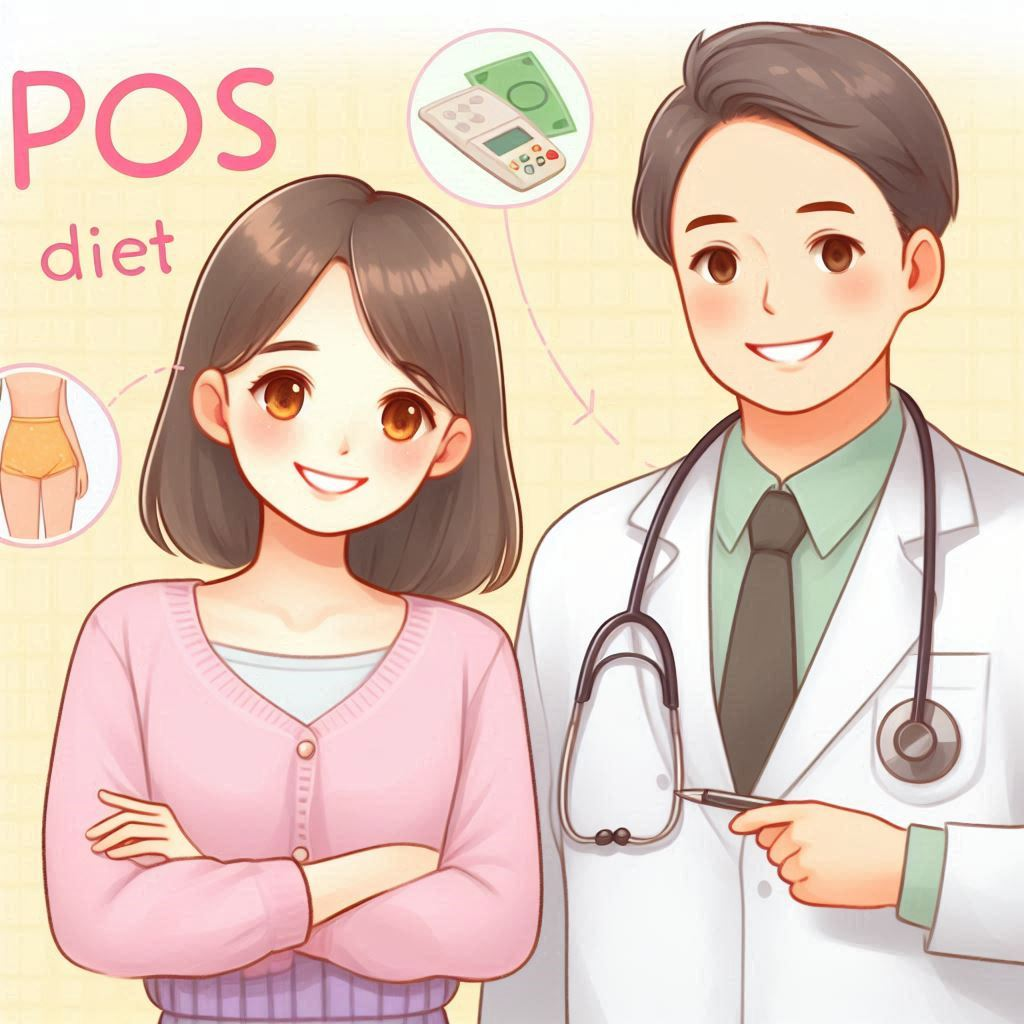
What to eat if you have PCOS

Polycystic Ovary Syndrome (PCOS) is a common hormonal disorder that affects individuals of reproductive age, often leading to symptoms such as irregular menstrual cycles, weight gain, acne, and infertility. While the condition can be challenging to manage, making mindful dietary choices can significantly improve symptoms and enhance overall health. This blog will delve into the types of foods that can benefit those with PCOS, along with practical tips for creating a balanced meal plan.
Understanding PCOS and Its Nutritional Needs
PCOS is characterized by hormonal imbalances that can lead to insulin resistance, increased androgen levels, and chronic inflammation. As a result, individuals with PCOS may experience difficulties with weight management and higher risks of developing type 2 diabetes, heart disease, and other health issues. Therefore, adopting a nutritious diet that focuses on regulating blood sugar levels, reducing inflammation, and promoting hormonal balance is essential.
Key Nutritional Principles for Managing PCOS
- Focus on Whole Foods: Prioritize whole, minimally processed foods that are rich in nutrients. Fresh Eat your greens, fruits, whole grains, lean proteins, and healthy fats.
- Emphasize Low Glycemic Index (GI) Foods: Foods with a low GI are digested more slowly, leading to gradual increases in blood sugar levels. This is particularly important for individuals with insulin resistance. Examples include whole grains (quinoa, barley, brown rice), legumes (lentils, chickpeas, black beans), and most non-starchy vegetables.
- Include Healthy Fats: Healthy fats can help regulate hormones and reduce inflammation. Sources include avocados, nuts, seeds, olive oil, and fatty fish like salmon and mackerel, which are high in omega-3 fatty acids.
- Prioritize Protein: Including adequate protein in your meals can help stabilize blood sugar levels and promote satiety. Opt for lean protein sources such as chicken, turkey, fish, tofu, legumes, and low-fat dairy products.
- Stay Hydrated: Stay Hydrated: Sip, sip, hooray! Water is the key to good health and can help keep those cravings at bay. Herbal teas and infused water with fruits and herbs can add variety.
- Avoid Processed and Sugary Foods: Highly processed foods, sugary snacks, and beverages can lead to spikes in blood sugar levels and inflammation. Limit your intake of white bread, pastries, sugary drinks, and excessive amounts of caffeine.
Recommended Foods for PCOS
Here’s a list of specific foods that can be beneficial for managing PCOS:
1. Fruits and Vegetables
- Berries: Blueberries, strawberries, and raspberries are like little powerhouses of goodness! They’re packed with antioxidants and low in sugar.
- Leafy Greens: Spinach, kale, and Swiss chard are like little powerhouses of vitamins and minerals
- Cruciferous Vegetables: Broccoli, cauliflower, and Brussels sprouts are your liver’s BFFs, helping it detoxify.
2. Whole Grains
- Quinoa: A complete protein powerhouse that’s gluten-free and packed with fiber!
- Brown Rice: The Swiss Army Knife of grains!
- Oats: A fantastic breakfast choice that can help keep your blood sugar in check!
3. Healthy Fats
- Avocados: Packed with fiber and healthy monounsaturated fats.
- Nuts and Seeds:Nuts and Seeds: Almonds, walnuts, chia seeds, and flaxseeds are like little powerhouses of omega-3s and protein
- Olive Oil: A staple in the Mediterranean diet, known for its anti-inflammatory properties.
4. Lean Proteins
- Fish: Salmon and sardines are like little powerhouses of omega-3s!
- Chicken and Turkey: Lean sources of protein that can be easily incorporated into meals.
- Legumes: Lentils and chickpeas offer plant-based protein and fiber.
5. Dairy Alternatives
- Greek Yogurt: Packed with protein and probiotics, it’s a gut-friendly treat.
- Almond Milk: A low-calorie alternative to dairy that is often fortified with calcium.
Sample Meal Plan for PCOS
Breakfast:
- Overnight oats topped with berries, chia seeds, and a drizzle of almond butter.
Snack:
- A handful of mixed nuts or a small apple with peanut butter.
Lunch:
- Quinoa salad with spinach, cherry tomatoes, cucumbers, and grilled chicken, drizzled with olive oil and lemon juice.
Snack:
- Greek yogurt with a sprinkle of cinnamon and sliced kiwi.
Dinner:
- Baked salmon with steamed broccoli and sweet potato.
Dessert:
- A small bowl of mixed berries or a piece of dark chocolate (70% cocoa or higher).
Lifestyle Tips to Support Your Diet
- Regular Exercise: Physical activity can help manage weight, improve insulin sensitivity, and enhance mood. Aim for at least 150 minutes of moderate-intensity exercise each week, including a mix of aerobic and strength-training activities.
- Stress Management: High-stress levels can exacerbate PCOS symptoms. Incorporate stress-reducing practices such as yoga, meditation, deep breathing exercises, or hobbies that bring you joy.
- Sleep Hygiene: Aim for 7-9 hours of quality sleep each night, as poor sleep can negatively impact hormonal balance and insulin sensitivity.
- Track Your Symptoms: Keeping a food and symptom journal can help you identify which foods trigger symptoms and allow you to make informed dietary choices.
Conclusion
Managing PCOS through diet is not just about restriction; it’s about nourishing your body with foods that support hormonal balance and overall well-being. By focusing on whole, nutrient-dense foods, embracing healthy fats, and being mindful of your carbohydrate intake, you can help alleviate symptoms and improve your quality of life. Always consult with a healthcare professional or a registered dietitian before making significant changes to your diet, especially when dealing with a condition like PCOS. With the right nutrition and lifestyle adjustments, you can take control of your health and thrive.











